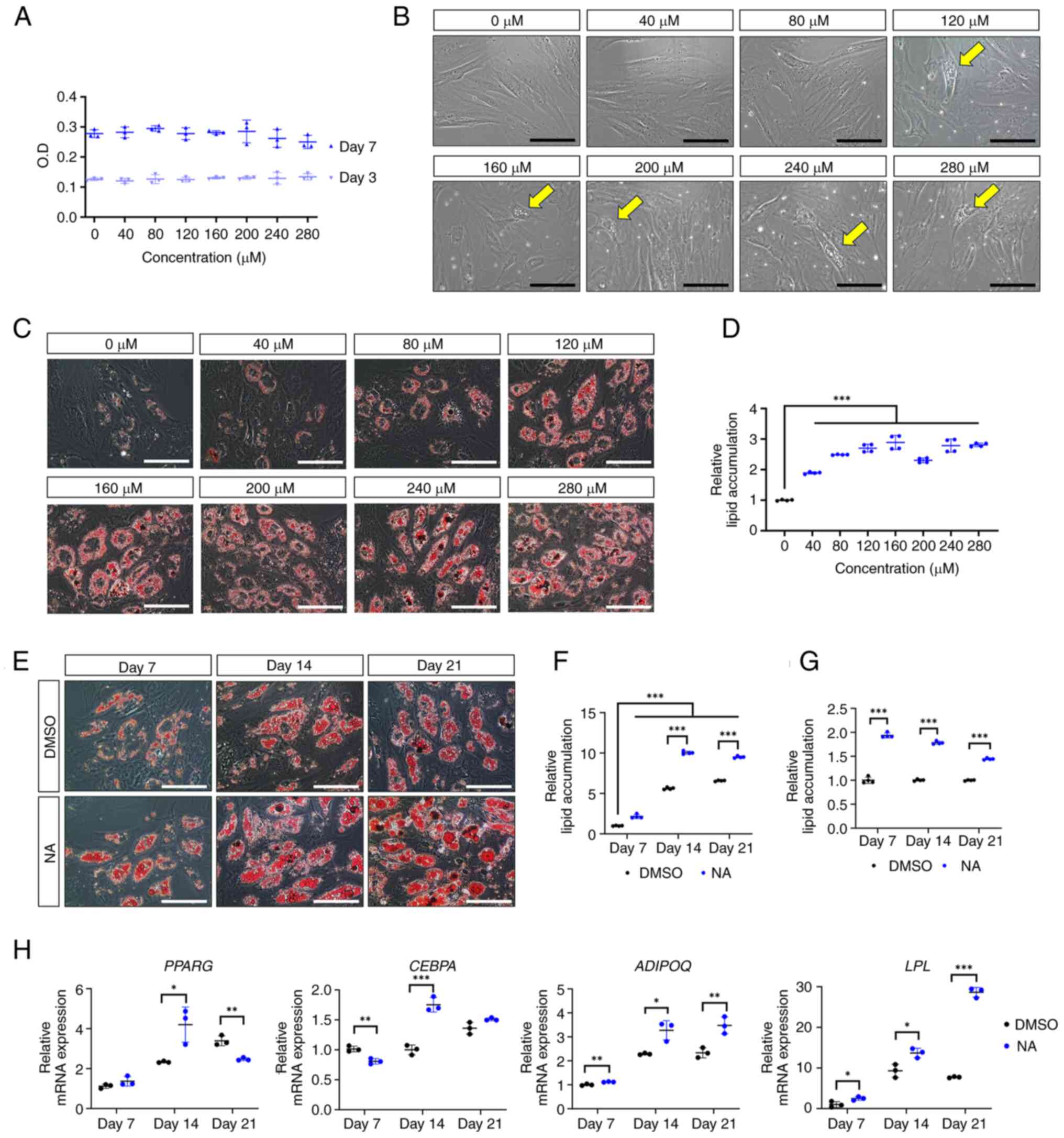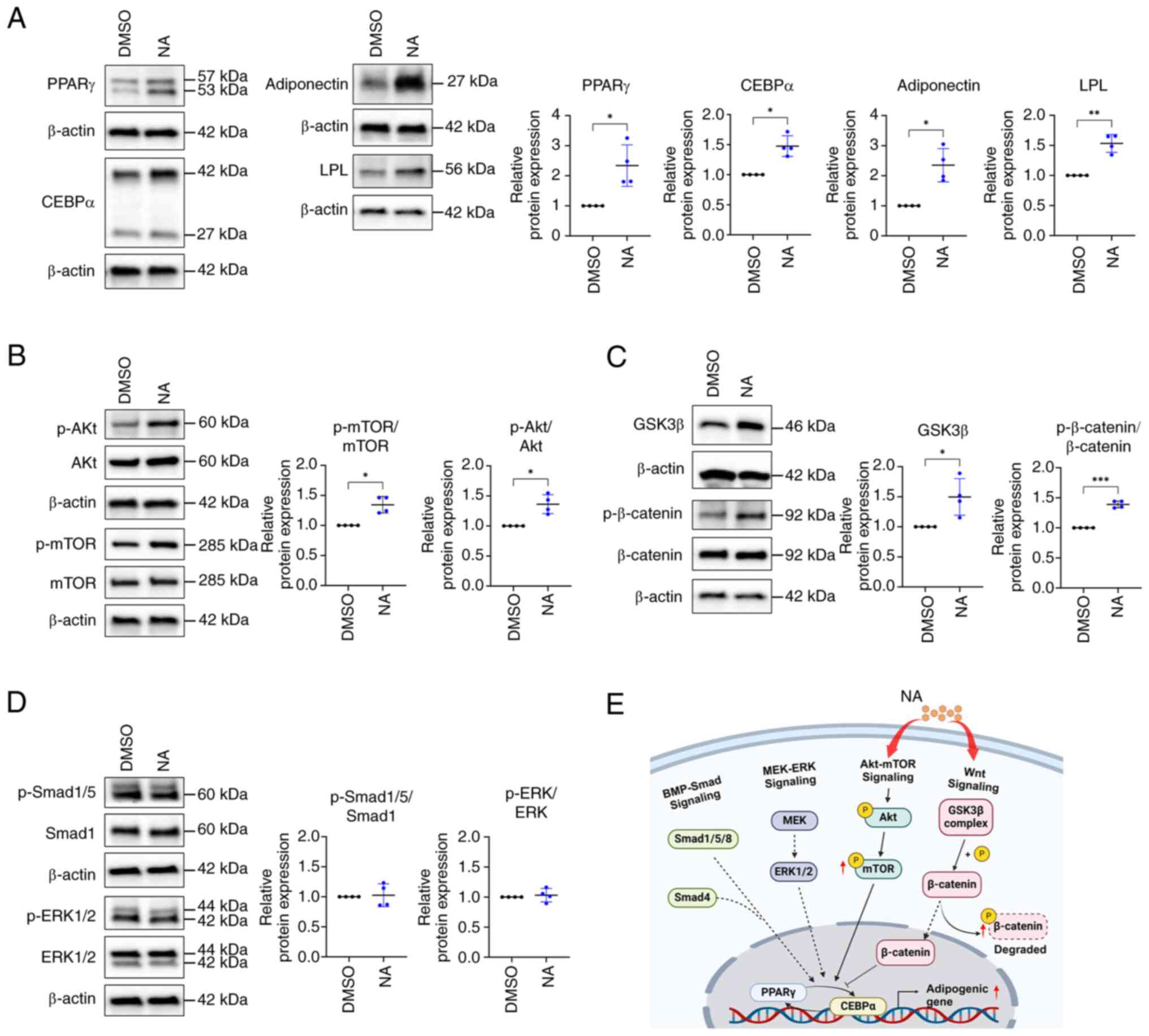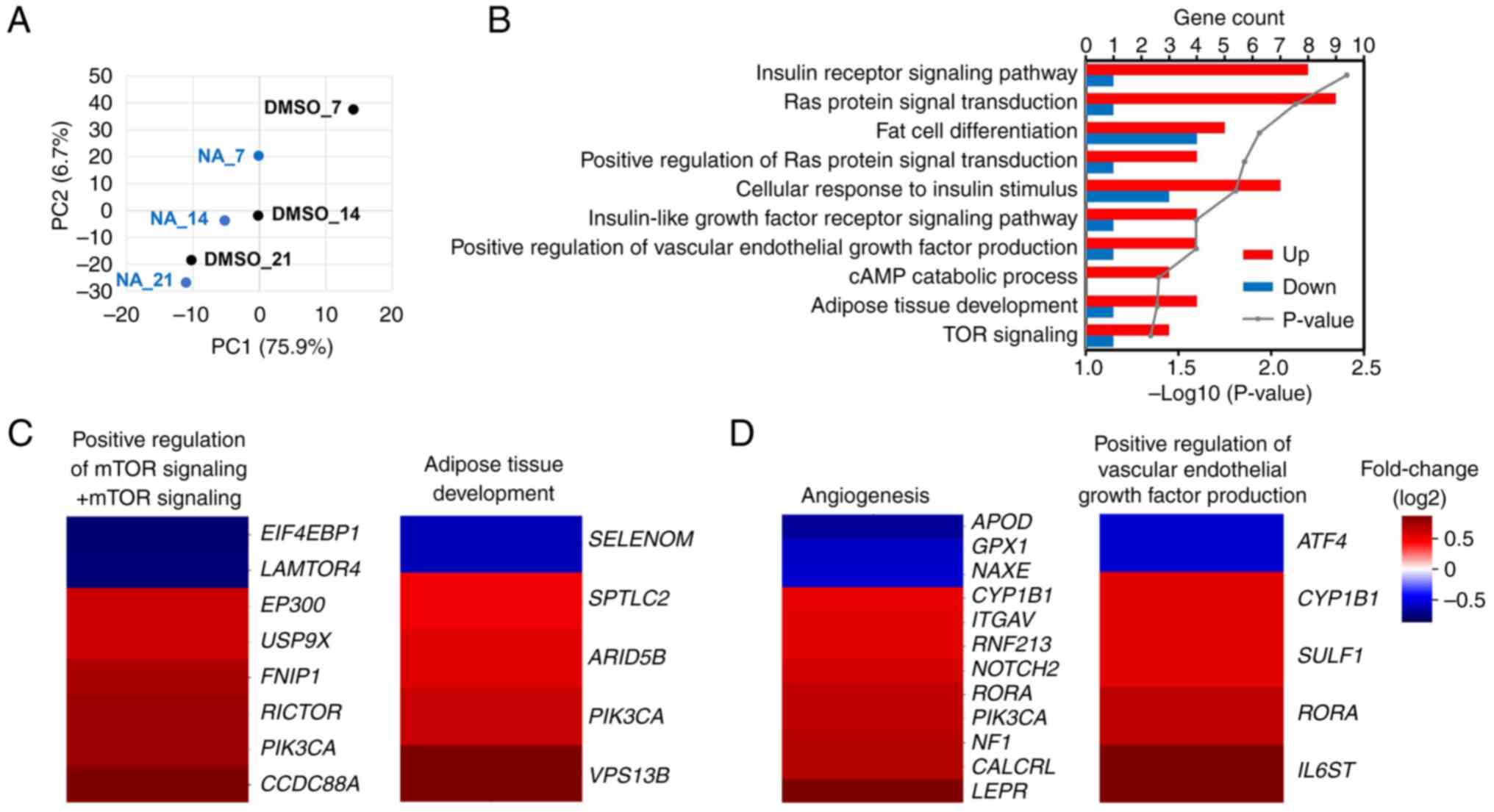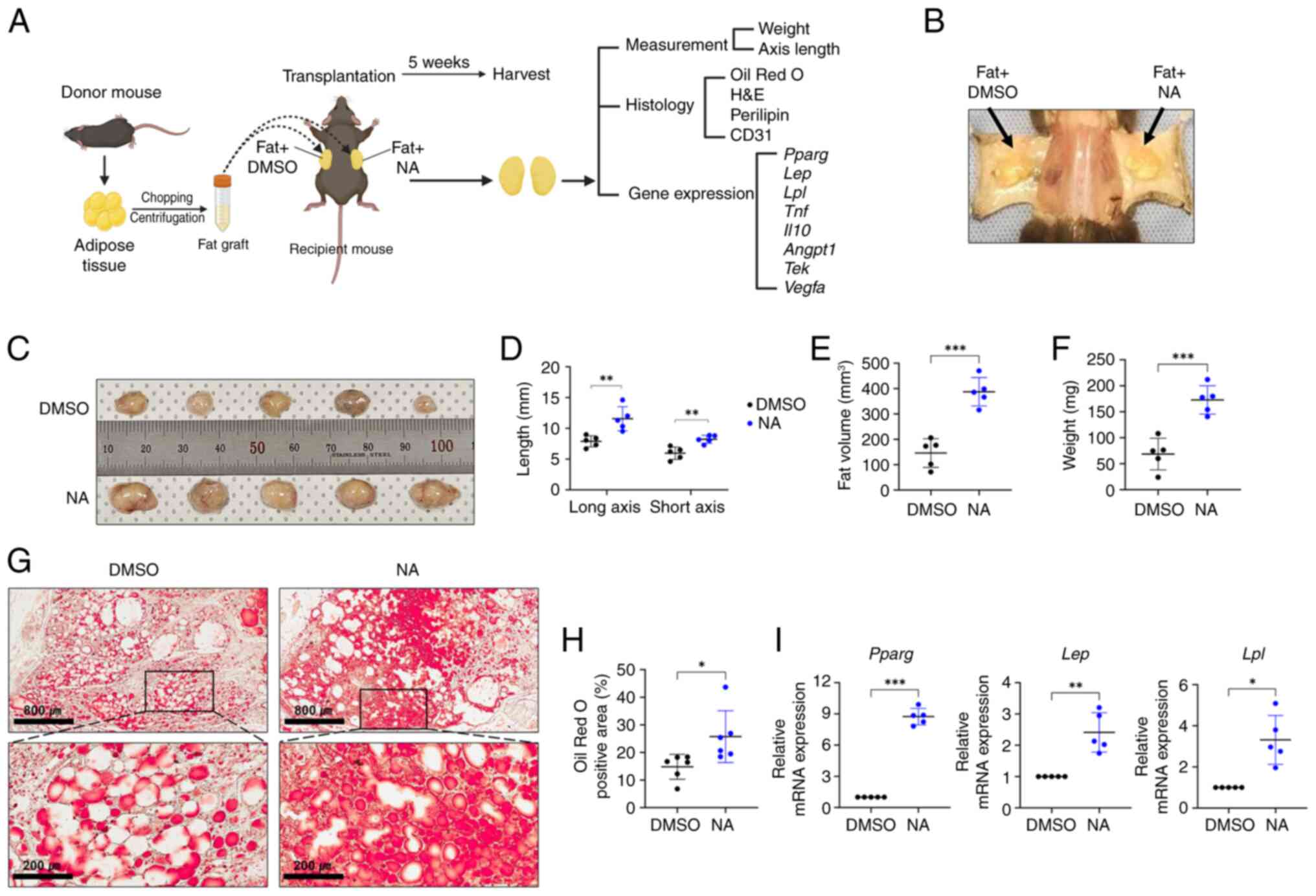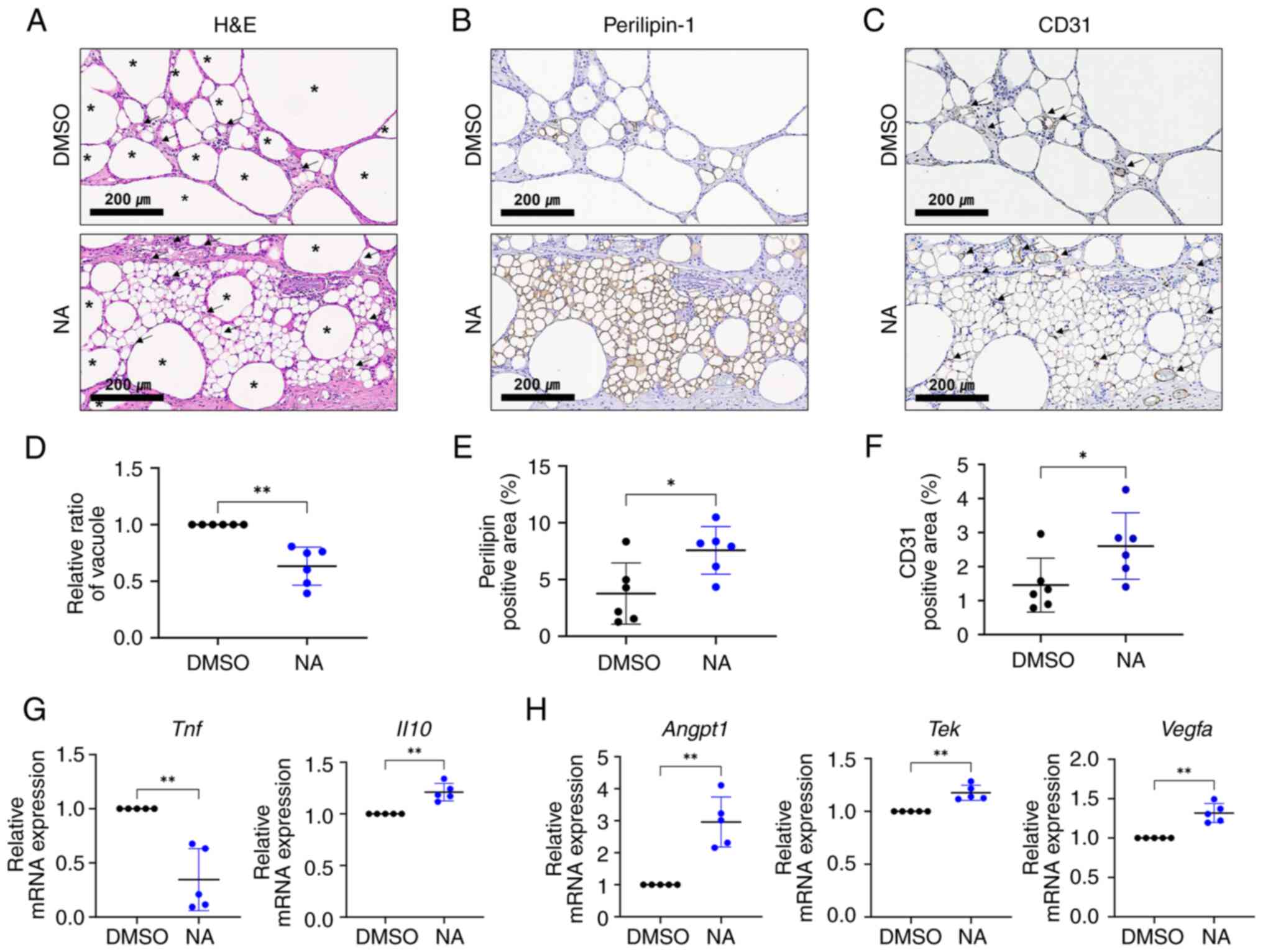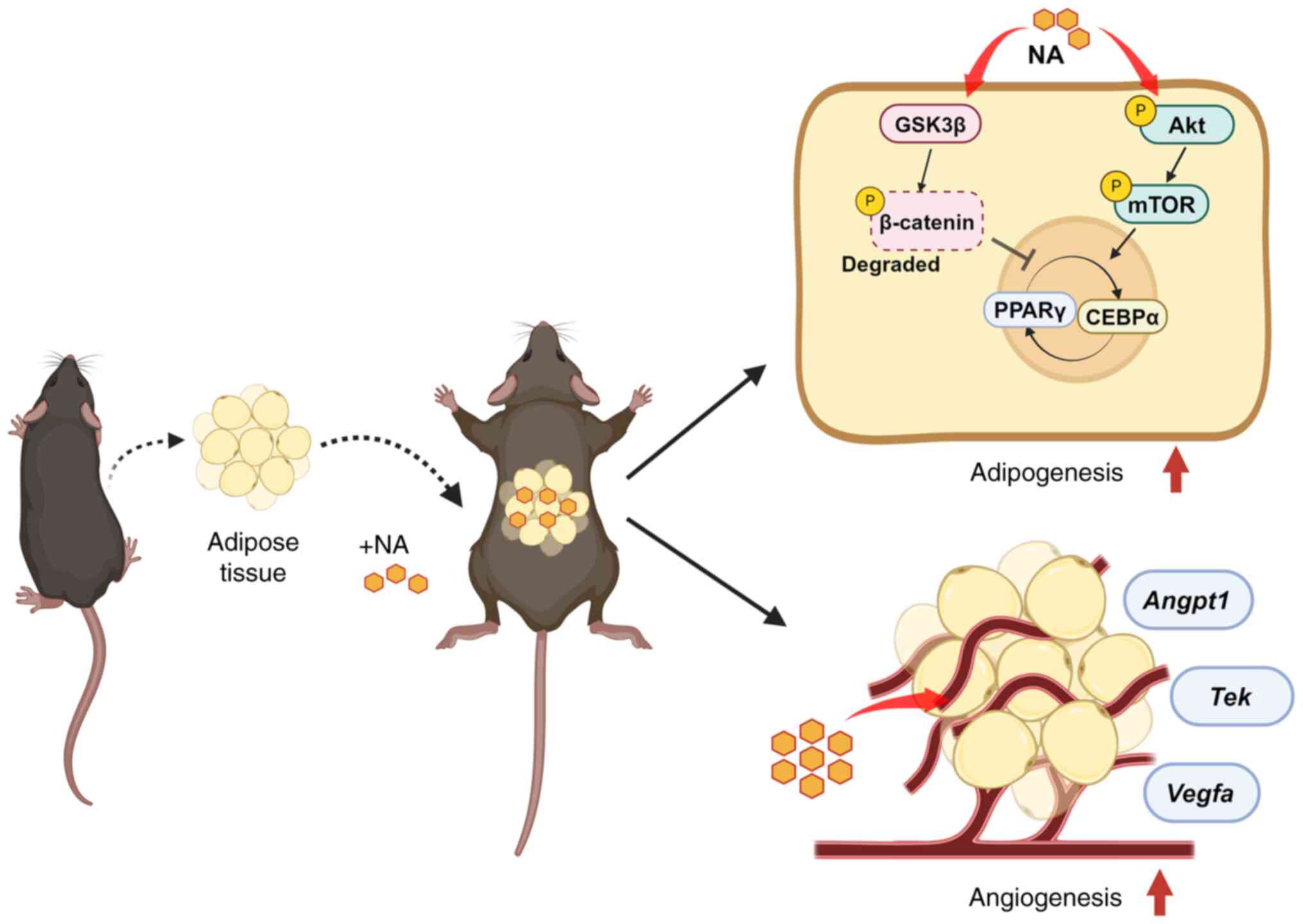|
1
|
Shim YH and Zhang RH: Literature review to
optimize the autologous fat transplantation procedure and recent
technologies to improve graft viability and overall outcome: A
aystematic and retrospective analytic approach. Aesthetic Plast
Surg. 41:815–831. 2017. View Article : Google Scholar : PubMed/NCBI
|
|
2
|
Mahoney CM, Imbarlina C, Yates CC and
Marra KG: Current therapeutic strategies for adipose tissue
defects/repair using engineered biomaterials and biomolecule
formulations. Front Pharmacol. 9:5072018. View Article : Google Scholar : PubMed/NCBI
|
|
3
|
Gao S, Lu B, Zhou R and Gao W: Research
progress of mechanisms of fat necrosis after autologous fat
grafting: A review. Medicine (Baltimore). 102:e332202023.
View Article : Google Scholar : PubMed/NCBI
|
|
4
|
Wu M, Li Y, Wang Z, Feng J, Wang J, Xiao
X, Lu F and Dong Z: Botulinum toxin A improves supramuscular fat
graft retention by enhancing angiogenesis and adipogenesis.
Dermatol Surg. 46:646–652. 2020. View Article : Google Scholar
|
|
5
|
Major GS, Simcock JW, Woodfield TBF and
Lim KS: Overcoming functional challenges in autologous and
engineered fat grafting trends. Trends Biotechnol. 40:77–92. 2022.
View Article : Google Scholar
|
|
6
|
Landau MJ, Birnbaum ZE, Kurtz LG and
Aronowitz JA: Review: Proposed methods to improve the survival of
adipose tissue in autologous fat grafting. Plast Reconstr Surg Glob
Open. 6:e18702018. View Article : Google Scholar : PubMed/NCBI
|
|
7
|
Dang J, Yang J, Yu Z, Chen L, Zhang Z,
Wang K, Tang J and Yi C: Bone marrow mesenchymal stem cells enhance
angiogenesis and promote fat retention in fat grafting via
polarized macrophages. Stem Cell Res Ther. 13:522022. View Article : Google Scholar : PubMed/NCBI
|
|
8
|
Anderson AE, Wu I, Parrillo AJ, Wolf MT,
Maestas DR Jr, Graham I, Tam AJ, Payne RM, Aston J, Cooney CM, et
al: An immunologically active, adipose-derived extracellular matrix
biomaterial for soft tissue reconstruction: Concept to clinical
trial. NPJ Regen Med. 7:62022. View Article : Google Scholar : PubMed/NCBI
|
|
9
|
Tang Q, Chen C, Wang X, Li W, Zhang Y,
Wang M, Jing W, Wang H, Guo W and Tian W: Botulinum toxin A
improves adipose tissue engraftment by promoting cell
proliferation, adipogenesis and angiogenesis. Int J Mol Med.
40:713–720. 2017. View Article : Google Scholar : PubMed/NCBI
|
|
10
|
Li Q, Chen J, Yu X and Gao JM: A mini
review of nervonic acid: Source, production, and biological
functions. Food Chem. 301:1252862019. View Article : Google Scholar : PubMed/NCBI
|
|
11
|
Kageyama Y, Deguchi Y, Hattori K, Yoshida
S, Goto YI, Inoue K and Kato T: Nervonic acid level in
cerebrospinal fluid is a candidate biomarker for depressive and
manic symptoms: A pilot study. Brain Behav. 11:e020752021.
View Article : Google Scholar : PubMed/NCBI
|
|
12
|
Keppley LJW, Walker SJ, Gademsey AN, Smith
JP, Keller SR, Kester M and Fox TE: Nervonic acid limits weight
gain in a mouse model of diet-induced obesity. FASEB J.
34:15314–15326. 2020. View Article : Google Scholar : PubMed/NCBI
|
|
13
|
Kim SJ, Kwon S, Chung S, Lee EJ, Park SE,
Choi SJ, Oh SY, Ryu GH, Jeon HB and Chang JW: Nervonic acid
inhibits replicative senescence of human Wharton's Jelly-derived
mesenchymal stem cells. Int J Stem Cells. 17:80–90. 2023.
View Article : Google Scholar : PubMed/NCBI
|
|
14
|
Palumbo P, Lombardi F, Siragusa G, Cifone
MG, Cinque B and Giuliani M: Methods of isolation, characterization
and expansion of human adipose-derived stem cells (ASCs): An
overview. Int J Mol Sci. 19:18972018. View Article : Google Scholar : PubMed/NCBI
|
|
15
|
Choi YS, Park YB, Ha CW, Kim JA, Heo JC,
Han WJ, Oh SY and Choi SJ: Different characteristics of mesenchymal
stem cells isolated from different layers of full term placenta.
PLoS One. 12:e01726422017. View Article : Google Scholar : PubMed/NCBI
|
|
16
|
Kim JY, Kim DH, Kim DS, Kim JH, Jeong SY,
Jeon HB, Lee EH, Yang YS, Oh W and Chang JW: Galectin-3 secreted by
human umbilical cord blood-derived mesenchymal stem cells reduces
amyloid-beta42 neurotoxicity in vitro. FEBS Lett. 584:3601–3608.
2010. View Article : Google Scholar : PubMed/NCBI
|
|
17
|
Park SE, Lee J, Chang EH, Kim JH, Sung JH,
Na DL and Chang JW: Activin A secreted by human mesenchymal stem
cells induces neuronal development and neurite outgrowth in an in
vitro model of Alz'eimer's disease: Neurogenesis induced by MSCs
via activin A. Arch Pharm Res. 39:1171–1179. 2016. View Article : Google Scholar : PubMed/NCBI
|
|
18
|
Livak KJ and Schmittgen TD: Analysis of
relative gene expression data using real-time quantitative PCR and
the 2−ΔΔCT method. Methods. 25:402–408. 2001. View Article : Google Scholar
|
|
19
|
Andrews S: FastQC: A quality control tool
for high throughput sequence data. Babraham Institute; 2010,
http://www.bioinformatics.babraham.ac.uk/projects/fastqc/.
|
|
20
|
Hannon Lab: FASTX-Toolkit
(RRID:SCR_005534). https://github.com/agordon/fastx_toolkit.
|
|
21
|
Bushnell B: BBMap. SourceForge; San Diego,
CA: 2014, https://sourceforge.net/projects/bbmap/.
|
|
22
|
Trapnell C, Pachter L and Salzberg SL:
TopHat: Discovering splice junctions with RNA-Seq. Bioinformatics.
25:1105–1111. 2009. View Article : Google Scholar : PubMed/NCBI
|
|
23
|
Roberts A, Trapnell C, Donaghey J, Rinn JL
and Pachter L: Improving RNA-seq expression estimates by correcting
for fragment bias. Genome Biol. 12:R222011. View Article : Google Scholar : PubMed/NCBI
|
|
24
|
Huang da W, Sherman BT and Lempicki RA:
Systematic and integrative analysis of large gene lists using DAVID
bioinformatics resources. Nat Protoc. 4:44–57. 2009. View Article : Google Scholar : PubMed/NCBI
|
|
25
|
Huang da W, Sherman BT and Lempicki RA:
Bioinformatics enrichment tools: Paths toward the comprehensive
functional analysis of large gene lists. Nucleic Acids Res.
37:1–13. 2009. View Article : Google Scholar
|
|
26
|
Kanehisa M and Sato Y: Kegg mapper for
inferring cellular functions from protein sequences. Protein Sci.
29:28–35. 2020. View Article : Google Scholar
|
|
27
|
Kanehisa M, Sato Y and Kawashima M: Kegg
mapping tools for uncovering hidden features in biological data.
Protein Sci. 31:47–53. 2022. View Article : Google Scholar :
|
|
28
|
Tomayko MM and Reynolds CP: Determination
of subcutaneous tumor size in athymic (nude) mice. Cancer Chemother
Pharmacol. 24:148–154. 1989. View Article : Google Scholar : PubMed/NCBI
|
|
29
|
Council NR: Guide for the care and use of
laboratory animals. Eighth edition. The National Academies Press;
Washington, DC: 2011
|
|
30
|
Bankhead P, Loughrey MB, Fernández JA,
Dombrowski Y, McArt DG, Dunne PD, McQuaid S, Gray RT, Murray LJ,
Coleman HG, et al: QuPath: Open source software for digital
pathology image analysis. Sci Rep. 7:168782017. View Article : Google Scholar : PubMed/NCBI
|
|
31
|
Ghaben AL and Scherer PE: Adipogenesis and
metabolic health. Nat Rev Mol Cell Biol. 20:242–258. 2019.
View Article : Google Scholar : PubMed/NCBI
|
|
32
|
Prusty D, Park BH, Davis KE and Farmer SR:
Activation of MEK/ERK signaling promotes adipogenesis by enhancing
peroxisome proliferator-activated receptor gamma (PPARgamma) and
C/EBPalpha gene expression during the differentiation of 3T3-L1
preadipocytes. J Biol Chem. 277:46226–46232. 2002. View Article : Google Scholar : PubMed/NCBI
|
|
33
|
Mineda K, Kuno S, Kato H, Kinoshita K, Doi
K, Hashimoto I, Nakanishi H and Yoshimura K: Chronic inflammation
and progressive calcification as a result of fat necrosis: The
worst outcome in fat grafting. Plast Reconstr Surg. 133:1064–1072.
2014. View Article : Google Scholar : PubMed/NCBI
|
|
34
|
Hu Y, Jiang Y, Wang M, Tian W and Wang H:
Concentrated growth factor enhanced fat graft survival: A
comparative study. Dermatol Surg. 44:976–984. 2018. View Article : Google Scholar : PubMed/NCBI
|
|
35
|
Muruganandan S, Roman AA and Sinal CJ:
Adipocyte differentiation of bone marrow-derived mesenchymal stem
cells: Cross talk with the osteoblastogenic program. Cell Mol Life
Sci. 66:236–253. 2009. View Article : Google Scholar
|
|
36
|
Chen Q, Shou P, Zheng C, Jiang M, Cao G,
Yang Q, Cao J, Xie N, Velletri T, Zhang X, et al: Fate decision of
mesenchymal stem cells: Adipocytes or osteoblasts? Cell Death
Differ. 23:1128–1139. 2016. View Article : Google Scholar : PubMed/NCBI
|
|
37
|
Chang E and Kim CY: Natural products and
obesity: A focus on the regulation of mitotic clonal expansion
during adipogenesis. Molecules. 24:11572019. View Article : Google Scholar : PubMed/NCBI
|
|
38
|
Zhang HH, Huang J, Düvel K, Boback B, Wu
S, Squillace RM, Wu CL and Manning BD: Insulin stimulates
adipogenesis through the Akt-TSC2-mTORC1 pathway. PLoS One.
4:e61892009. View Article : Google Scholar : PubMed/NCBI
|
|
39
|
Tang QQ and Lane MD: Adipogenesis: From
stem cell to adipocyte. Annu Rev Biochem. 81:715–736. 2012.
View Article : Google Scholar : PubMed/NCBI
|
|
40
|
de Winter TJJ and Nusse R: Running against
the Wnt: How Wnt/β-catenin suppresses adipogenesis. Front Cell Dev
Biol. 9:6274292021. View Article : Google Scholar
|
|
41
|
Goto T, Lee JY, Teraminami A, Kim YI,
Hirai S, Uemura T, Inoue H, Takahashi N and Kawada T: Activation of
peroxisome proliferator-activated receptor-alpha stimulates both
differentiation and fatty acid oxidation in adipocytes. J Lipid
Res. 52:873–884. 2011. View Article : Google Scholar : PubMed/NCBI
|
|
42
|
Sunaga A, Sugawara Y, Katsuragi-Tomioka Y
and Kobayashi E: The fate of nonvascularized fat grafts:
Histological and bioluminescent study. Plast Reconstr Surg Glob
Open. 1:e402013. View Article : Google Scholar
|
|
43
|
Eto H, Kato H, Suga H, Aoi N, Doi K, Kuno
S and Yoshimura K: The fate of adipocytes after nonvascularized fat
grafting: Evidence of early death and replacement of adipocytes.
Plast Reconstr Surg. 129:1081–1092. 2012. View Article : Google Scholar : PubMed/NCBI
|
|
44
|
Mashiko T and Yoshimura K: How does fat
survive and remodel after grafting? Clin Plast Surg. 42:181–190.
2015. View Article : Google Scholar : PubMed/NCBI
|
|
45
|
Wang X, Liang T, Mao Y, Li Z, Li X, Zhu X,
Cao F and Zhang J: Nervonic acid improves liver inflammation in a
mouse model of Parkinson's disease by inhibiting proinflammatory
signaling pathways and regulating metabolic pathways.
Phytomedicine. 117:1549112023. View Article : Google Scholar : PubMed/NCBI
|
|
46
|
Yuan SN, Wang MX, Han JL, Feng CY, Wang M,
Wang M, Sun JY, Li NY, Simal-Gandara J and Liu C: Improved colonic
inflammation by nervonic acid via inhibition of NF-kappaB signaling
pathway of DSS-induced colitis mice. Phytomedicine. 112:1547022023.
View Article : Google Scholar
|
|
47
|
Sawaguchi T, Nakajima T, Hasegawa T,
Shibasaki I, Kaneda H, Obi S, Kuwata T, Sakuma M, Toyoda S, Ohni M,
et al: Serum adiponectin and TNFalpha concentrations are closely
associated with epicardial adipose tissue fatty acid profiles in
patients undergoing cardiovascular surgery. Int J Cardiol Heart
Vasc. 18:86–95. 2018.PubMed/NCBI
|
|
48
|
Wolf AM, Wolf D, Rumpold H, Enrich B and
Tilg H: Adiponectin induces the anti-inflammatory cytokines IL-10
and IL-1RA in human leukocytes. Biochem Biophys Res Commun.
323:630–635. 2004. View Article : Google Scholar : PubMed/NCBI
|
|
49
|
Lira FS, Rosa JC, Pimentel GD, Seelaender
M, Damaso AR, Oyama LM and do Nascimento CO: Both adiponectin and
interleukin-10 inhibit LPS-induced activation of the NF-kappaB
pathway in 3T3-L1 adipocytes. Cytokine. 57:98–106. 2012. View Article : Google Scholar
|
|
50
|
Yoshimura K and Coleman SR: Complications
of fat grafting: How they occur and how to find, avoid, and treat
them. Clin Plast Surg. 42:383–388. 2015. View Article : Google Scholar : PubMed/NCBI
|
|
51
|
Evans BGA, Gronet EM and Saint-Cyr MH: How
fat grafting works. Plast Reconstr Surg Glob Open. 8:e27052020.
View Article : Google Scholar : PubMed/NCBI
|
|
52
|
Moustaki M, Papadopoulos O, Verikokos C,
Karypidis D, Masud D, Kostakis A, Papastefanaki F, Roubelakis MG
and Perrea D: Application of adipose-derived stromal cells in fat
grafting: Basic science and literature review. Exp Ther Med.
14:2415–2423. 2017. View Article : Google Scholar : PubMed/NCBI
|















